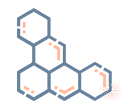Finsterer, J. (2008). Leigh and Leigh-Like Syndrome in Children and Adults. Pediatric Neurology, 39(4), 223-235. doi: 10.1016/j.pediatrneurol.2008.07.013
Rahman, S., Blok, R., Dahl, H., Danks, D., Kirby, D., & Chow, C. et al. (1996). Leigh syndrome: Clinical features and biochemical and DNA abnormalities. Annals Of Neurology, 39(3), 343-351. doi: 10.1002/ana.410390311
Lee, H., Tsai, C., Chi, C., Lee, H., & Chen, C. (2009). Leigh Syndrome: Clinical and Neuroimaging Follow-Up. Pediatric Neurology, 40(2), 88-93. doi: 10.1016/j.pediatrneurol.2008.09.020
Lake, N., Compton, A., Rahman, S., & Thorburn, D. (2015). Leigh syndrome: One disorder, more than 75 monogenic causes. Annals Of Neurology, 79(2), 190-203. doi: 10.1002/ana.24551
Baertling, F., Rodenburg, R. J., Schaper, J., Smeitink, J. A., Koopman, W. J., Mayatepek, E., Morava, E., & Distelmaier, F. (2014). A guide to diagnosis and treatment of Leigh syndrome. Journal of neurology, neurosurgery, and psychiatry, 85(3), 257–265. https://doi.org/10.1136/jnnp-2012-304426
Lake, N. J., Bird, M. J., Isohanni, P., & Paetau, A. (2015). Leigh syndrome: neuropathology and pathogenesis. Journal of neuropathology and experimental neurology, 74(6), 482–492. https://doi.org/10.1097/NEN.0000000000000195
Chen, L., Cui, Y., Jiang, D., Ma, C. Y., Tse, H. F., Hwu, W. L., & Lian, Q. (2018). Management of Leigh syndrome: Current status and new insights. Clinical genetics, 93(6), 1131–1140. https://doi.org/10.1111/cge.13139





